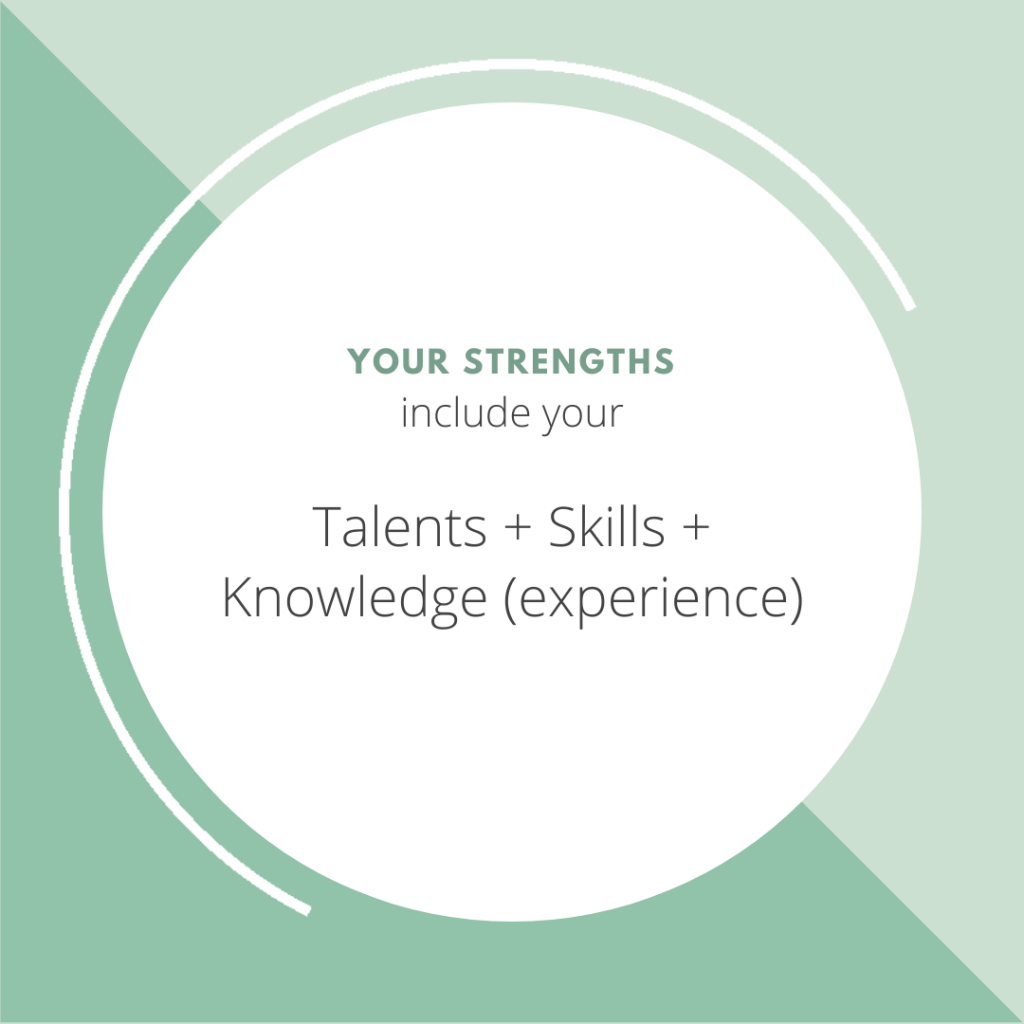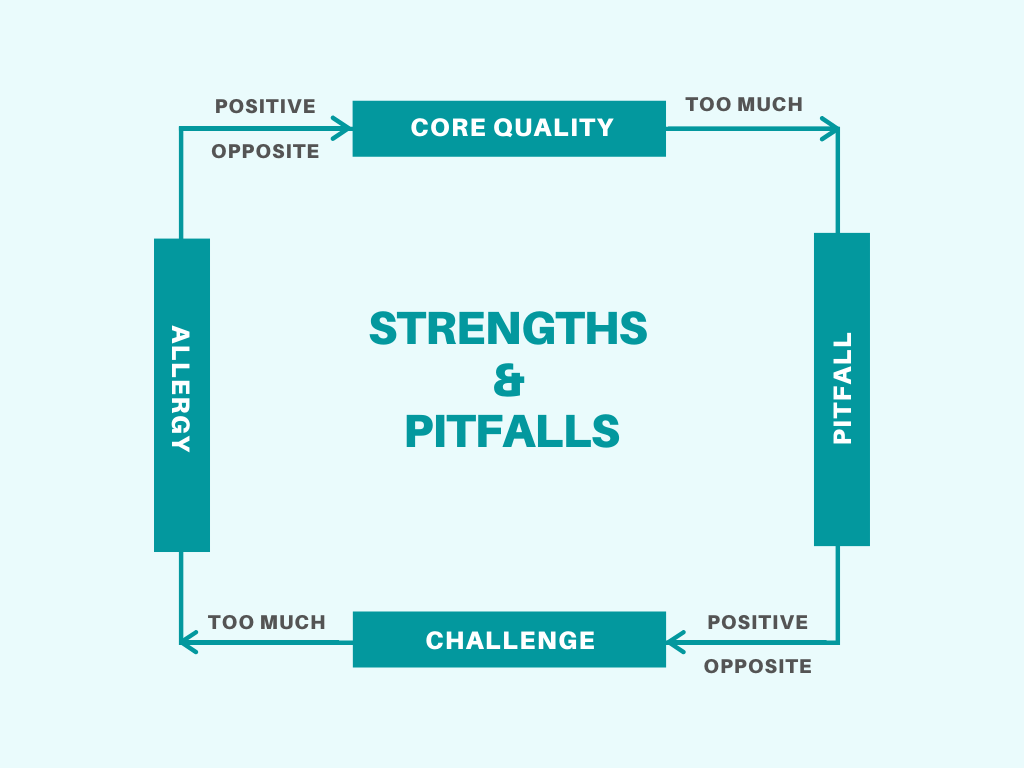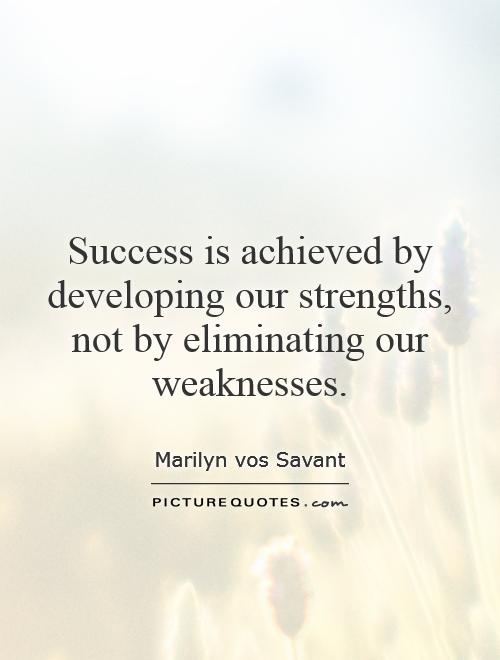Yesterday, I asked my team members to list out their top 3 strengths during our group huddle discussion. It was interesting to hear them list their strengths, but one guy in particular struggled with describing his own strengths. Even when he described his top strength as being supportive, he said it with hesitance. What happened after that was really beautiful. Two other people affirmed him and told him that they appreciated his silent support behind the scenes. His supporting role helped everyone on the team.
Most times, we are conditioned to look for the bad instead of the good. Our brain is wired to look at the negative incidences, failures and weaknesses in our lives, so that we can be aware of the threats we face in life and know how to react towards it. So it’s always easy to think about where we fall short in life, and we downplay our own strengths.
Perhaps some things that we do comes so naturally to us that we do not see it as an added advantage. We might only realise these are strengths when we discover the things we find easy to do are a challenge to others.
It could be speaking in front of a crowd.
It could be looking at details.
It could be executing an idea.
It could be connecting with people.

In another conversation with a different friend, he said that he is a jack of all trades but a master of none. He then went on to talk about how he was not the best at his ‘game’ (in his career). Personally, I see many strengths that this person has – he is personable, versatile and adaptable with so many skills under his belt. If only he saw it as a strength instead of a weakness!
Our role as coaches would be to help coachees highlight areas of their lives that are strengths. Talents are inborn, but skills and knowledge can be learned. When we focus on our strengths instead of weaknesses, we feel better about ourselves and more confident in achieving success in life. While we can spend a lot of time fixing our weaknesses, we might get better results if we just put our energy into fine-tuning our strengths.
“One should waste as little effort as possible on improving areas of low competence. It takes far more energy to improve from incompetence to mediocrity than it takes to improve from first-rate performance to excellence – Peter Drucker
During the webinar, Coach Mel shared these 9 guiding principles of a strength based approach:
- Each coachee possesses a uniqueness that helps them evolve (potential, strengths and capabilities)
- What receives focus becomes their reality
- Be careful with the choice of words / language (our language can influence the client’s reality. For example, what is the problem here that you want to talk about…If we start the session this way… even if there is no problem, our brain will look for problems)
- Accept the coachee’s speed of shift / changes
- Support coachee as authentically as you can
- The coachee is the storyteller of their story
- Build upon experience, to dream the future (position from that experience and helping them move towards the future, but not talk too much about the past)
- Be flexible in coachee’s capacity building
- Be collaborative, adaptive and value differences
Some questions that we can ask our coachee:
1. What do people compliment you for?
2. What are you good at?
3. What tasks energize you?
4. How can you use your strengths to reach your goals?
5. What words come to mind when you think about your strengths?
6. What happens when you combine your top 3 strengths?
As I reflect on my own top 3 strengths, I think I am good at connecting with people one on one, inspiring others and creative storytelling through visuals and words. Knowing these 3 strengths of mine affirms the path that I am on right now. I find new energy knowing that I excel in these areas. Coming back to my workplace and my team, I know that collectively, we are stronger together than individually. That is why I love working with others. It helps us go much further and achieve more in life together.
Interestingly, when strengths are overdone and overused, it becomes a pitfall. The opposite of this pitfall becomes the challenge. And too much of a challenge leads to an allergy.

So if I take my core quality of being inspirational as an example… too much of it leads to pride (pitfall). The challenge then for me is to remain humble. But then, too much of ‘false’ humility leads me towards insecurity (my allergy). This is so true because I have struggled with insecurity for years. This has truly been an eye-opening insight for me to see how it all inter-relates.
So while it is good to know our strengths, it’s really important that we do not overplay it until it becomes a pitfall for us. It’s a fine balance.

Cover image credit: Photo by Ashutosh Sonwani from Pexels
